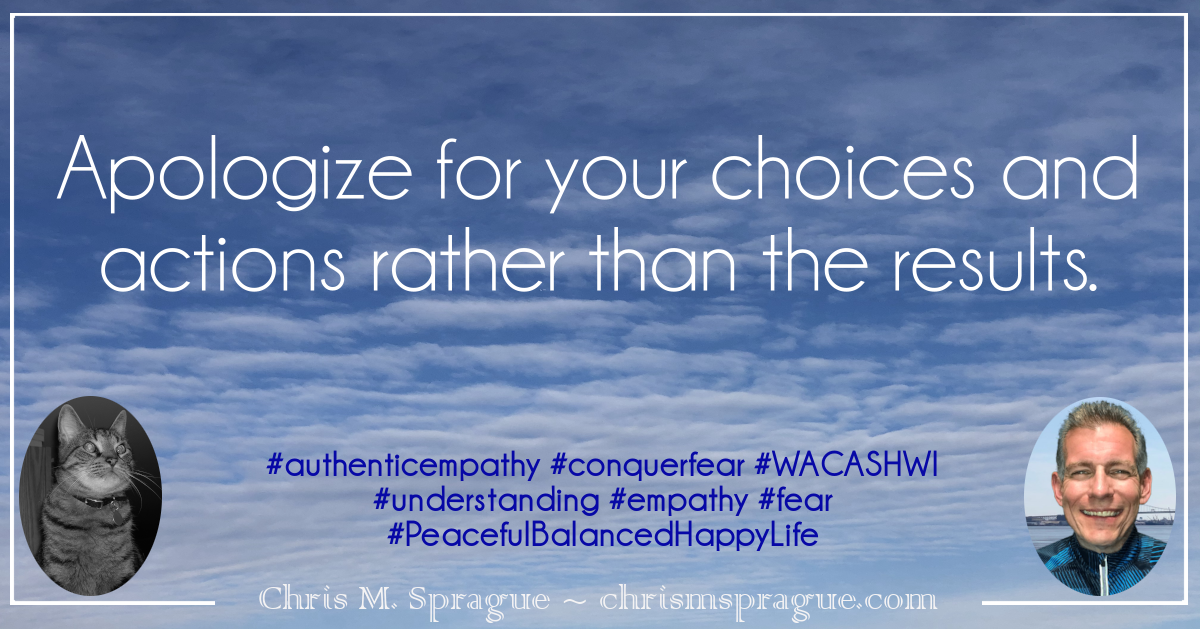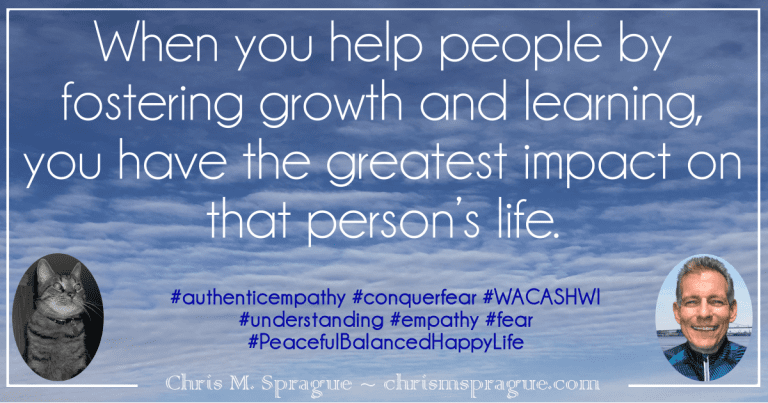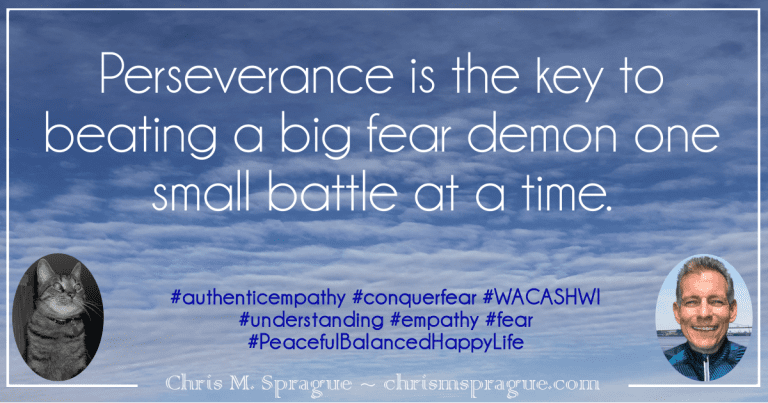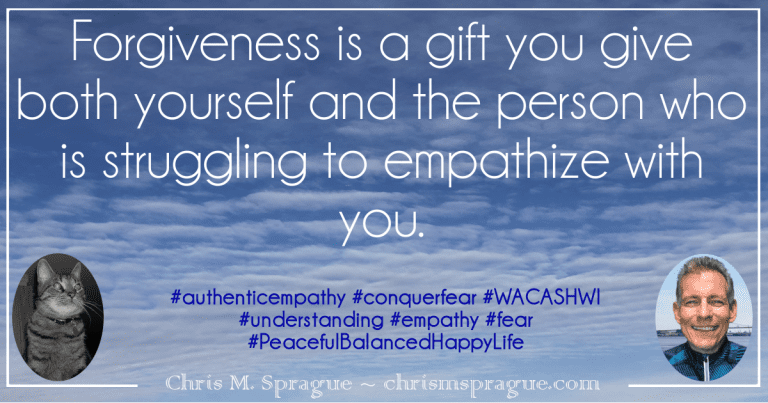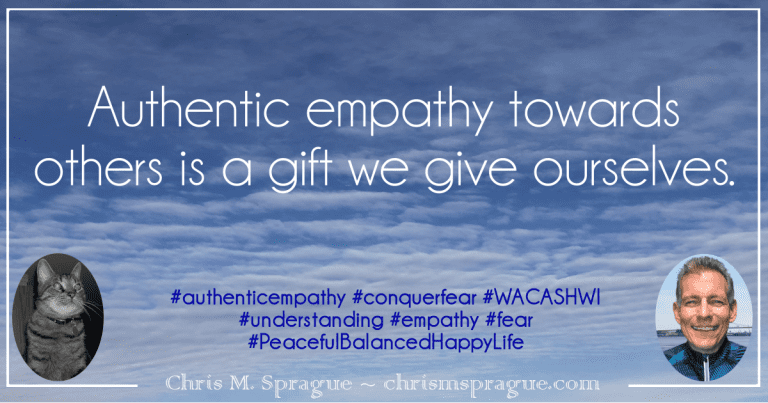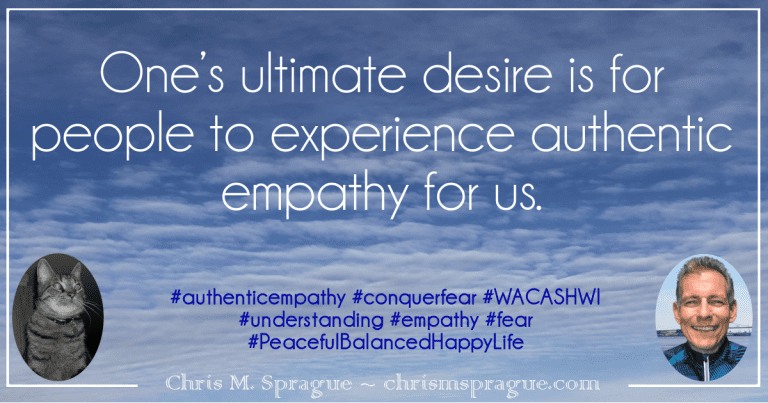More Effective Apologies
Estimated Reading Time: 6 Minutes
A strategy to making apologies more meaningful and effective.
Apologies are great. Apologizing to someone shows recognition that you made a mistake. Apologizing shows recognition of the desire to change. One area most of us fall short in is what we apologize for.
How will making apologies more effective positively impact your life? How will giving someone a more effective apology, in turn affect how they receive your apology? How will you feel once you move from apologizing for things to taking action to remove the need for the apology? How will it feel when you remove some of the things you do repeatedly that you end up apologizing for?
There was a time in my life I was chronically late. It got to the point of almost being comical. I remember one job I had over 30 years ago that I was always 7 minutes late to. It did not matter what time I started; I would always show up 7 minutes after my scheduled start time. At one point, my boss tried an experiment. My normal starting time was 7:00 AM. For about a week, he changed my start time to 6:53 AM. Guess what time I showed up? If you guessed 7:00 AM, you were right. In a future post I may go into the reasons ‘why’ I was always 7 minutes late, for today, we will focus on how I apologized and how it could have been more effective.
At that time, because I did not know any better, I apologized to my boss in the standard way. I would say, “Sorry I’m late boss.” While he would always accept my apology and kept me employed because of the work I did, while I worked there, I never changed. Why? Because I never looked at the root cause of why I was late. Why? Because I did not know any better and I felt there was nothing I could do. What could I have said that would made the apology more effective? “I am sorry for the choices I made that caused me to be late.” If I had done that, I would have looked at the choices I made that contributed to me being late and made different choices.
This is a great example of how apologizing for our choices and actions is more powerful and meaningful than what we all do; apologize for the result. When you focus on your choices and actions rather than the results, two important things happen. The first is that you show real recognition to the other party that you understand your part in what happened. The second is that you get the chance to change things. You get the chance to look at yourself and go, how can I make better decisions next time? This also gives you the opportunity to learn and grow.
So, the next time you apologize, I invite you to look at what happened, and apologize for your choices and actions rather than results and then start working to change your choices.
How this applies to fear…
When it comes to fear and making apologies more effective, the more effective you make an apology, the less fear you will eventually feel. At first, it will be difficult. Apologizing for your actions and choices can be scarier than apologizing for the results. Why? Because apologizing for actions and choices means you need to take responsibility for those actions and choices. When you apologize for a result, you are implying that the result was out of your control. Take when I talked about being late. I would apologize for being late and blame traffic or any number of other things. This allowed me to imply it was the fault of other drivers (traffic) rather than my fault (for making the decision not to leave 10 minutes earlier). If I had apologized for not leaving earlier, I would have had to admit to myself it was my fault for being late and been forced to look in the mirror and decide how to fix it. This was a time in my life when looking in the mirror was much scarier than blaming others. Can you relate?
How this applies to authentic empathy…
When it comes to authentic empathy and making apologies more effective, you will be shocked at the level of authentic empathy you will receive from others when you take responsibility for your actions and choices. Most people are accustomed to hearing people apologize for the result. In many cases, they have even become numb to the apologies. This numbness diminishes the effect of the apology and causes a lack of communication. When people hear a results-based apology, most of the time they will just say, “Oh – that’s ok.” While this may feel like a more peaceful result, over time, people will become frustrated with you for doing the same thing and not changing. When they get to that point, the reason behind your apology will not matter anymore to them. However, when you start by apologizing to someone for your choices and actions, they will be more open to forgiving you rather than just saying, “Oh – that’s ok.” Which is more valuable to you? Also, they may initially question why you did not make different choices. If they do, embrace it; they are trying to understand you and experience authentic empathy for you.
How this applies to WACASHWI…
When it comes to WACASHWI and making apologies more effective, there are some things that you will remove from your list that will cause friction with people close to you. Effective apologies are the lubrication to ensure the friction does not build up so much heat that it starts a fire. While some people may still not like that you have removed something from your list, when you apologize for removing it by apologizing for your actions, they will have a greater chance of understanding you, experiencing authentic empathy for you, and supporting your decision. A great example would be painting a room in your house. Say your significant other would like you to paint a room in your house. This room has a vaulted ceiling 18 feet tall. This means you will need to get on a ladder to paint the corners near the ceiling with a brush. This is something you Want to do for your significant other. This is something you Can do because you already have the ladder. This is something you Should do to help save some money. However, you know from your history that your fear of heights will stop you from doing it. You also know that your significant other does not know about your fear of heights. When it never gets done and you remove it from your list, you could apologize and say, “I am sorry I did not paint the room.” I invite you to use a more effective apology in the form of, “I am sorry I never told you about my fear of heights before and that I said I would paint the room anyways.”
Your daily invitations…
- I invite you to think about your recent apologies.
- I invite you to consider how you could have made those apologies more effective.
- I invite you to write down your thoughts, feelings, and actions in your journal.
- I invite you to talk with people close to you and demonstrate your newfound method of apologizing.
Final step – how will you implement one thing you learned today in your life?
This all is but one step in your journey to living a more stress-free life, beating the demons of fear, and raising your level of authentic empathy towards yourself and others.
